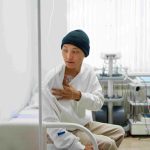When Tun Abdullah Ahmad Badawi took the stage in January 2007 to inaugurate the construction of Malaysia’s first national cancer institute, he did so not just as the country’s fifth prime minister, but as a grieving husband who had watched cancer claim the life of the woman he loved.
Tun Abdullah, who passed away on April 14 at the age of 85, led the nation from 2003 to 2009 through an era of relative calm and moderation. But one of his most enduring legacies lies in a quieter revolution: the way he brought cancer care to the forefront of Malaysia’s public health agenda.
His wife, Tun Endon Mahmood, died in 2005 after a long battle with breast cancer. Her death, while deeply personal, became a public reckoning — one that altered the trajectory of the country’s healthcare priorities.
That act of transformation took shape in the form of the National Cancer Institute (Institut Kanser Negara) in Putrajaya, a RM340 million project that Tun Abdullah helped bring to life. Envisioned as a world-class center dedicated to cancer treatment, research, and rehabilitation, the facility was designed to provide Malaysians with comprehensive care — and a new hope.
Before its creation, many Malaysians with advanced-stage cancer sought treatment abroad, a costly and emotionally taxing process. Tun Abdullah’s vision was to change that: to offer care on par with international standards, right at home.
The seeds for this transformation were also planted within the country’s 9th Malaysia Plan (2006–2010), the national development blueprint he oversaw. It was under his leadership that cancer care became integrated into this broader strategy. Investments flowed into upgrading medical facilities, increasing early detection and screening programs, and nurturing the next generation of healthcare professionals.
One major development was the incorporation of cancer screening into primary healthcare — with particular emphasis on breast and cervical cancer. These early efforts laid the groundwork for today’s community-based prevention and education campaigns.
While Tun Abdullah rarely spoke of his personal grief in public, those close to him say it was the engine that drove his determination to improve the system.
His administration’s emphasis on human capital development — a cornerstone of his governing philosophy — further bolstered the healthcare system. By strengthening training programmes and ethical standards within the medical field, he set in motion a system-wide recalibration that still benefits patients today.
Though not a medical expert, Tun Abdullah had a quiet but powerful way of making healthcare a national priority. In his typically understated style, he let the policies speak for themselves.
Indeed, the National Cancer Institute, now a pillar of Malaysia’s healthcare system, continues to expand its services, offering cutting-edge treatments and pioneering research. Its existence is a living tribute to a leader who turned personal tragedy into public purpose.
In a political career often defined by moderation and reform, his push for better cancer care might have seemed like a footnote. But in hospital wards across the country, where thousands of Malaysians receive life-saving treatment each year, it is a chapter written in quiet heroism.
As Malaysia bids farewell to Tun Abdullah, his legacy endures not just in archives or speeches, but in the lives saved — and in the families who no longer need to look beyond their borders for hope.





